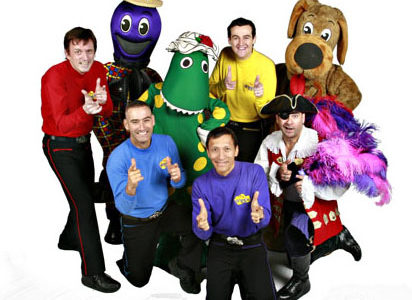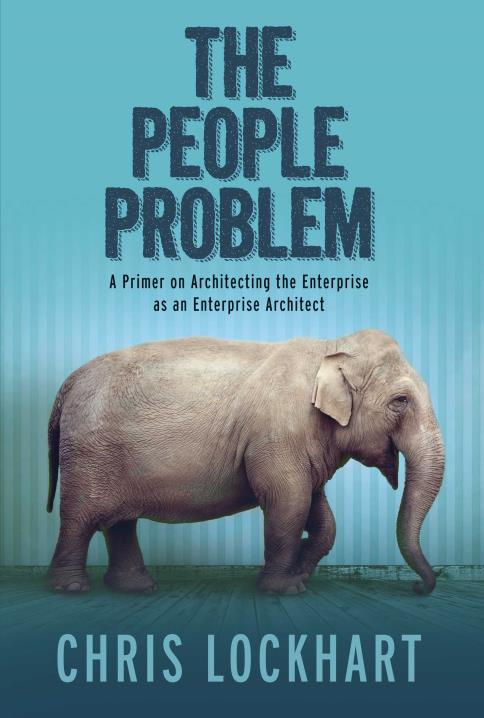I guarantee you’ve never heard this comparison
It’s a long one. Stay with me cause I think it pays off.
I’ve heard this tune before
I have 4 kids, 2 of them are young. As any normal parent knows, modern life offers a wealth of learning and entertainment options for our children. I suspect there are some parents out there who, true to their convictions, don’t allow their children to partake of television, video games, movies, etc. I suspect they are either stay-at-home parents or have only 1 kid (or have nannies or are, you know, superheroes). For the rest of us semi-sane parents of multiple kids, modern entertainment, a lot of it rich in educational value, has become a bit of a relief mechanism for tried patience and parenting weariness.
It has always struck me that being an effective parent is akin to being an effective executive or manager or strategist. Whether the topic is parenting or running a business or leading a team, certain similar skills are required. Sure you can use the cliché of trying to herd business analysts like cats or managing software developers that act like children, but the skill set goes beyond the obvious. There’s nuance to work that involves politics, discipline, appearance, guidance, metaphor, explanation, demonstration, entertainment, development, encouragement, punishment, among others.
Your theory, sir, is rubbish
The most interesting part to me, however, is that these skills are exercised regardless of whether or not we actually have any training invested in them. Nobody teaches you how to be a parent. We learn by observation and personal experience and, frankly, by doing.
Yes people go to university and become business majors or computer engineers specifically to learn a trade or a craft so they can apply it, so perhaps the analogy isn’t exact. But while they offer training on how business or IT is done, I have yet to encounter or hear of any university program that trains people to be effective at business or IT.
Sure the MBA professors give you tools to use, not unlike the tools you learn from parenting books and classes when you’re about to have your first child. That is the time you realize you have no idea what you’re doing, that no one has ever really prepared you and that you’re hopelessly out of your element. You obsess over learning the theory of parenting (or the theory of mastering your first post-college job). Of course, once you enter the real world of parenting (or business), much of that theory slowly goes by the wayside. It is replaced by practicality, knowledge acquired from peers, and knowledge acquired by doing.
Just as many college/ivory tower practices are hardly used after you graduate, I can honestly say by the 3rd kid we pretty much ignored the parenting guides and nosy/pushy friends and relatives.
No, I’ve literally heard this exact tune before
I don’t know if you have kids, but if you do you probably know about The Wiggles, or Mickey Mouse Clubhouse, or Dora, or Paw Patrol or Doc McStuffins. All are your run-of-the-mill irritants replete with colorful characters and grating, nonsensical songs that you can’t get out of your head. Yeah, sure they’re educational. Okay. But they make any parent want to teleport back to a pre-electrical time after the video has been on repeat for 4 hours.
The Wiggles especially wear on me. My kids love these 4 Australians in their colorful shirts. The teenager won’t admit it, but he watches it in the SUV too along with his younger siblings. They know all the songs, the movements, the correct responses to rhetorical questions. It is fascinating to watch them, to be honest. They can be watching a brand new episode they’ve never seen before (or be at one of the live shows) and they know, they know, what is going to happen, when it will happen, and what the right response from the audience should be. They know when to clap, when to shout, when to dance.
It can’t be simple memorization. No, they have developed a set of learned behaviors or skills to use in response to situations involving The Wiggles. Even when there is slight variation in the order or specific verses of the songs, the conceptual framework that has been developed between entertainer and child enables the child to adapt. As a result, they enjoy The Wiggles immensely because there is a connection formed. They are part of the show.
The Wiggles operate in a routine. The Wiggles perform their acts with simplicity. The Wiggles wear bold, consistent colors to identify their roles in the show. Everyone knows Anthony likes to eat fruit salad. And yes the main characters have changed actors over 20 years, but the routines and colors and songs remain the same. The children enjoy The Wiggles because The Wiggles offer predictability.
What’s that got to do with EA?
The skills the kids have learned with The Wiggles are not unlike the skills we end up learning in business or IT. In a well-run enterprise, the employees gain an intuitive understanding of what is supposed to happen, when it is supposed to happen who is making it happen and why it is happening. In a well-run enterprise, we all know when to clap, dance, sing or shout.
These skills aren’t taught in college. These skills are learned by experiencing the real operations of real enterprises. We’re equipped with tools by our education, but these are mainly theories that don’t teach us anything unless they’re put into practice. We learn by failing to clap at the right time, being slightly embarrassed and resolving to clap correctly next time.
If our enterprises operated like The Wiggles, we would all know the what’s, the when’s, the who’s and the why’s. If our systems and processes were as predictable as a children’s television program, we would know the how’s. How smoothly things would run if we all understood how to get predictable results from repeatable actions we all knew in advance?
EA must be like The Wiggles
The purpose of enterprise architecture is to ensure that this type of tribal knowledge is institutionalized; to ensure that the what’s, when’s, who’s, why’s and how’s are documented at a conceptual and sometimes logical level. EA exists to ensure that business strategy is aligned with enabling technology. It supports simplicity. It enables agility. EA ensures that we each know our role in the overall orchestration that is the enterprise.
In order to execute on often squishy things like vision and mission, in order to link them with goals and objectives and map IT’s technical capabilities to these goals and objectives, in order to measure how well we’re meeting those objectives, we need a blueprint. Dora has a blueprint. Mickey Mouse Clubhouse has a blueprint. The Wiggles have a blueprint.
For business, EA is that blueprint. It enables us to take the tools we’ve been taught and skills we’ve learned and plug them into a predefined system that enables predictability of results.
Disagree? Think I’m oversimplifying? Think predictability is not really a chief concern of EA? Hate The Wiggles? Chime in. I’d love to hear your view.


